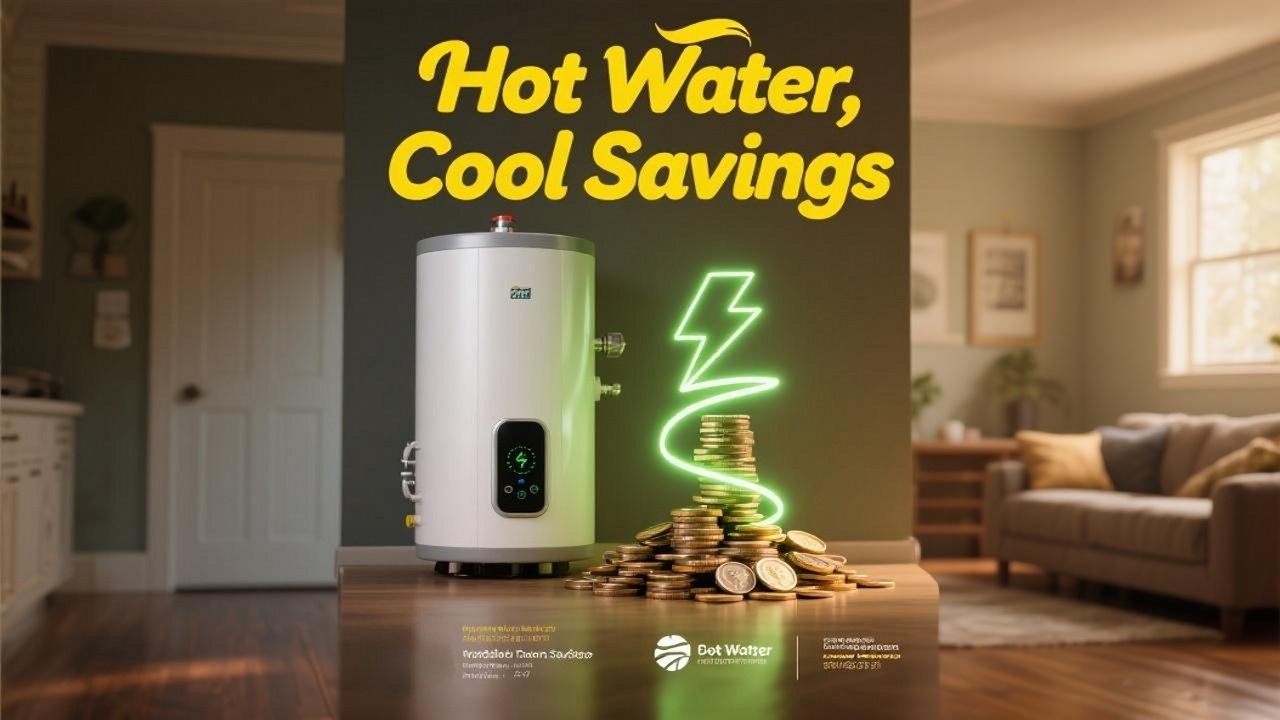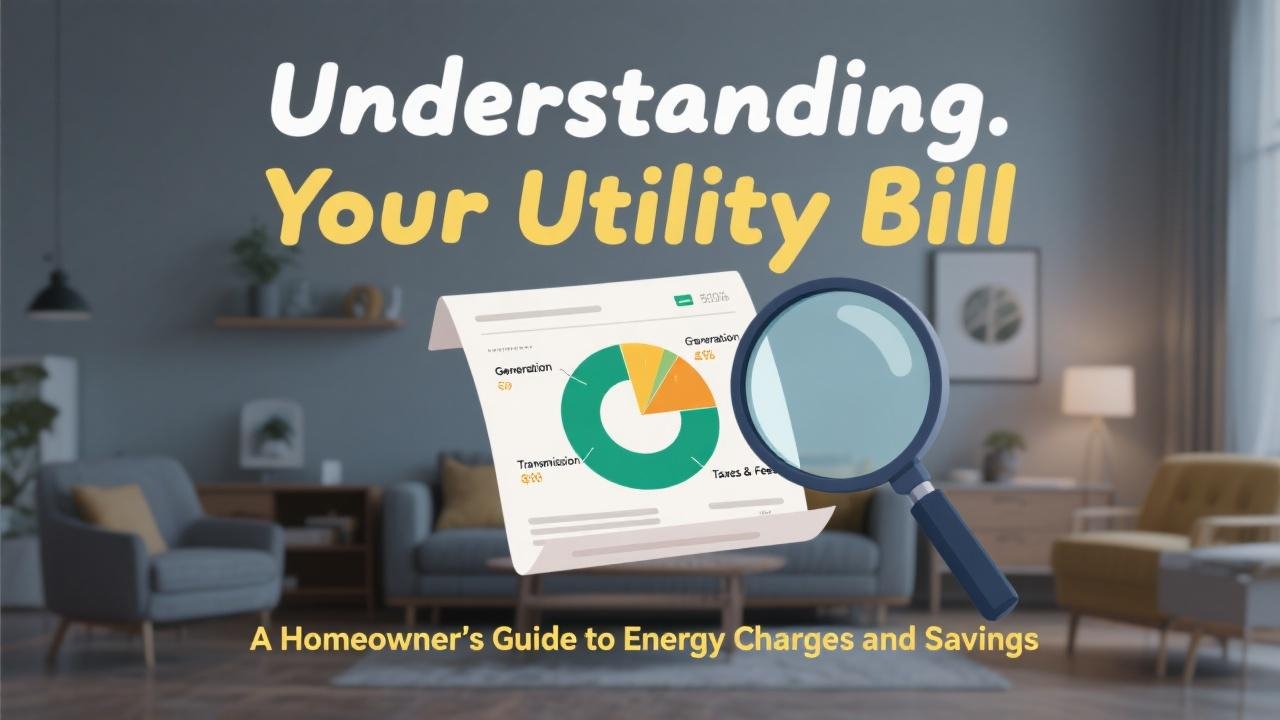Taming One of Your Home’s Biggest Energy Users
Showering, washing dishes, doing laundry – hot water is an essential part of daily life. But did you know that water heating is typically the second or third largest energy expense in most U.S. homes, accounting for around 12-20% of your total energy bill? In 2025, with a continued focus on energy conservation and cost savings, improving your water heating efficiency can lead to substantial reductions in your utility bills and a smaller carbon footprint. This guide explores various ways to make your hot water usage more efficient, from simple habit changes to upgrading your water heater.
Understanding Your Current Water Heater
Before making changes, it’s helpful to know what type of water heater you have:
* Storage Tank Water Heaters (Most Common): These consist of an insulated tank that heats and stores a specific volume of water (typically 30-80 gallons) to be ready for use. They can be powered by natural gas, propane, electricity, or oil.
* Tankless (On-Demand) Water Heaters: These heat water directly without a storage tank. When you turn on a hot water tap, cold water travels through a pipe into the unit, and either a gas burner or an electric element heats the water instantaneously. They provide hot water only when needed.
* Heat Pump Water Heaters (HPWHs) / Hybrid Water Heaters: These use electricity to move heat from the surrounding air into the water tank, rather than generating heat directly like a conventional electric resistance water heater. They are significantly more efficient than standard electric tank models. (URL:
* Solar Water Heaters: Use solar collectors on your roof to capture the sun’s energy and heat water, which is then stored in a tank. Often used in conjunction with a conventional backup water heater.
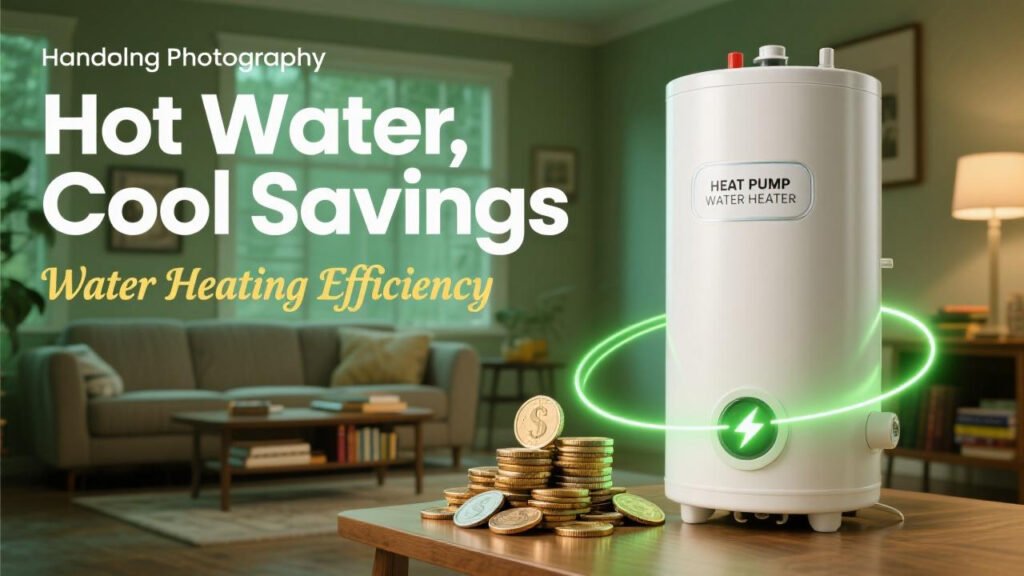
Low-Cost and DIY Tips for Water Heating Efficiency in 2025:
You don’t always need a new water heater to start saving energy:
- Lower the Thermostat Setting:
- Most water heaters are set to 140°F by default. Lowering the temperature to 120°F is safe for most households and can save 3-5% on water heating costs for every 10°F reduction. It also reduces the risk of scalding.
- Insulate Your Storage Tank Water Heater:
- If you have an older storage tank water heater, especially if it’s in an unconditioned space like a basement or garage, an insulating blanket can reduce standby heat loss by 25-45%. (Newer tanks often have sufficient built-in insulation).
- Insulate Hot Water Pipes:
- Insulate the first few feet of accessible hot water pipes coming from your water heater, and any other accessible hot water pipes, especially those running through unheated areas. This reduces heat loss as water travels to your faucets and can allow you to lower your water heater temperature further.
- Fix Leaky Faucets and Pipes Promptly:
- A hot water leak is a direct waste of heated water and the energy used to heat it. One drip per second can waste over 3,000 gallons per year!
- Use Less Hot Water:
- Shorter Showers: Reducing shower time is a direct way to save hot water.
- Install Low-Flow Fixtures: Use low-flow showerheads and faucet aerators. ENERGY STAR certified models can significantly reduce water consumption without sacrificing performance.
- Wash Clothes in Cold Water: About 90% of the energy used by a washing machine goes to heating the water. Modern detergents work very well in cold water.
- Run Full Loads in Dishwashers and Washing Machines: Maximize the use of hot water for each cycle.
- Turn Off the Tap: Don’t let hot water run unnecessarily while shaving or brushing teeth.
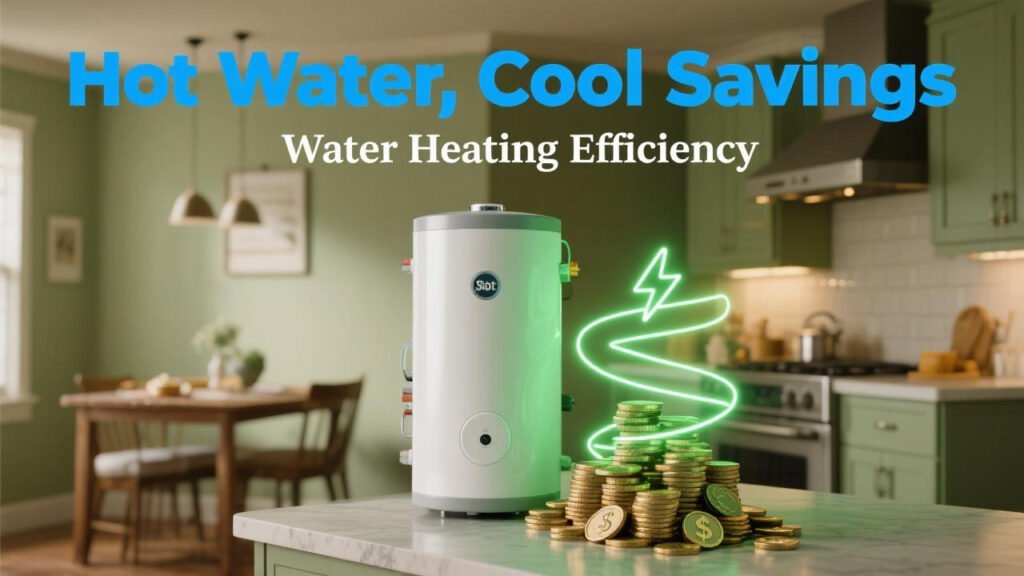
Upgrading to an Energy-Efficient Water Heater in 2025:
If your current water heater is old (typically 10-15 years for tank models) or inefficient, replacing it with a modern, energy-efficient model can lead to substantial long-term savings.
- ENERGY STAR Certified Water Heaters:
- Look for the ENERGY STAR label. These models are independently certified to save energy and money without sacrificing performance.
- Heat Pump Water Heaters (HPWHs):
- How They Save: Can be 2-3 times more energy-efficient than conventional electric resistance water heaters. They work like a refrigerator in reverse, pulling heat from the surrounding air and transferring it to the water in the tank.
- Best For: Replacing standard electric storage tank water heaters. They need to be installed in a location with adequate air space around them (e.g., basement, garage, utility room with at least 1,000 cubic feet of air space).
- Incentives: Often qualify for significant federal tax credits (up to $2,000 under the Energy Efficient Home Improvement Credit in 2025 ) and state/utility rebates.
- Tankless (On-Demand) Water Heaters (Gas or Electric):
- How They Save: Eliminate standby heat losses associated with storage tanks because they only heat water when you need it. Can be 24-34% more efficient than conventional storage tank water heaters for homes that use 41 gallons or less of hot water daily. (URL:
- Pros: Continuous hot water, longer lifespan (often 20+ years), compact size.
- Cons: Higher upfront cost than tank models, electric models may require significant electrical upgrades, gas models require proper venting. Flow rate can be limited if multiple hot water taps are used simultaneously.
- Solar Water Heaters:
- How They Save: Use free energy from the sun to heat your water. Can reduce water heating bills by 50-80%.
- Pros: Significant long-term savings, environmentally friendly.
- Cons: Higher upfront cost, requires a sunny location for collectors, usually needs a backup conventional system for cloudy days or high demand.
- Incentives: Eligible for the 30% Residential Clean Energy federal tax credit.
- Condensing Gas Storage Tank Water Heaters:
- How They Save: For homes using natural gas, condensing water heaters are much more efficient (ENERGY STAR models have an efficiency of 90% or higher) than standard gas tank models by capturing extra heat from the exhaust gases that would normally be vented outside.
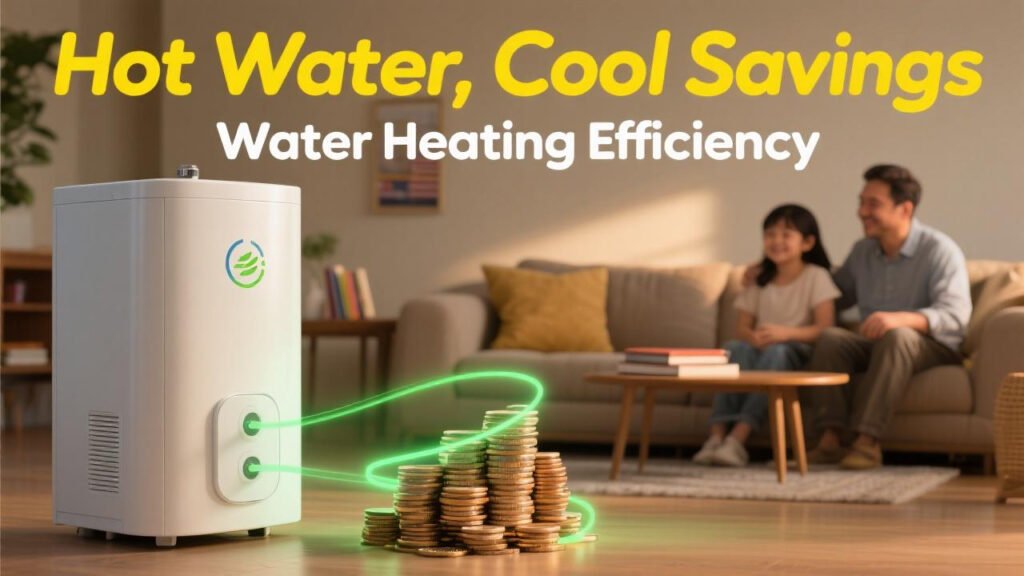
Choosing the Right Efficient Water Heater:
Consider:
* Fuel Type: What fuel sources are available and most cost-effective in your area (natural gas, propane, electricity)?
* Household Size and Hot Water Demand:
* Upfront Cost vs. Long-Term Savings:
* Available Space and Installation Requirements:
* Local Climate: (Especially relevant for heat pump water heaters and solar water heaters).
* Available Incentives: Federal tax credits and local rebates can significantly influence the best financial choice.
Smart Hot Water Use for a Cooler Planet and Wallet
Reducing your water heating energy consumption in 2025 is a win-win: it saves you money on your utility bills and lessens your home’s environmental impact. By implementing simple DIY conservation measures and, when the time comes, upgrading to an ENERGY STAR certified, high-efficiency water heater like a heat pump water heater or tankless unit, you can make a substantial difference. Don’t forget to research available tax credits and rebates to make your upgrade even more affordable. Consulting with a qualified plumbing or HVAC professional can help you choose the best water heating solution for your home’s specific needs.

